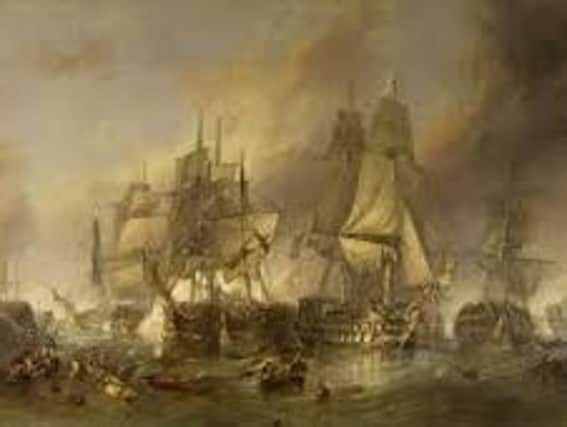Details about Britain's first 'National' Anthem revealed


While the most popular annual celebration of classical music reaches its crescendo with patriotic songs marking Britain's royal family and bygone days of "ruling the waves", the nation was once united by the love of a now-forgotten tune that featured Druids and Queen Boudica.
The anthem, called Britons, Strike Home, was hugely popular, particularly during times of war, and encouraged people to defend their home and avenge perceived wrongdoing.
Advertisement
Hide AdAdvertisement
Hide AdIt was most notably thought to have been played at the Battle of Trafalgar in 1805, when the band aboard the ship of the line HMS Tonnant struck up the anthem as she sailed into action.
However, it appears to have fallen out of favour later that century as imperialism brought Britain greater confidence and power to flex its muscles across the globe.
Dr Martha Vandrei, from the University of Exeter, has uncovered details about the song and its use.
"It would be certainly interesting to hear how audiences at this year's Last Night of the Proms reacted to Britons, Strike Home," she said.
Advertisement
Hide AdAdvertisement
Hide Ad"Two hundred years ago it was a British anthem on a par with Rule, Britannia! and God Save The Queen. But the sense of Britishness that the phrase encapsulated was beginning to lose its potency in the latter half of the 19th century.
"It represented an older Britain and didn't seem to capture the country's modern imperial identity."
Britons, Strike Home was first used in a play about Boudica and described how the ancient British general Caratach tried to rouse the army against the Romans, appealing to the Druids to sing and take up arms.
The Chief Druid sings: "Britons, strike home! / Revenge, revenge your Country's wrong / Fight! Fight and record. Fight! / Fight and record yourselves in Druid's Song / Fight! Fight and record. Fight! / Fight and record yourselves in Druid's Song."
Advertisement
Hide AdAdvertisement
Hide AdDr Vandrei said: "It's possible the song's references to Druids, timely when it was first performed because of a current interest in ancient British history, left later audiences cold.
"In a time of science and increasing secularism, a song about Boudica and her pagan hordes may have seemed absurd."
Henry Purcell wrote the song a few months before his death in 1695 - making it 50 years older than Rule, Britannia!
The song became popular in theatres and was performed publicly throughout Great Britain.
Advertisement
Hide AdAdvertisement
Hide AdIt was also taken up by the military, first used as early as 1715 and latterly performed to toast the Army or Navy.
Britons, Strike Home reached its greatest poignancy during times of conflict between Britain and Spain.
By the time of the Seven Years War, which lasted between 1756 and 1763, it was said that "even Children just weaned from the Breast, were taught to lisp, "BRITONS STRIKE HOME"'.
Later the song was adopted by people campaigning for political reform throughout the early 1830s. The phrase appeared often on banners at reform and later Chartist rallies.
The last recorded instance of it being played as a call to arms was in December 1914, at a concert to show solidarity with Belgium.